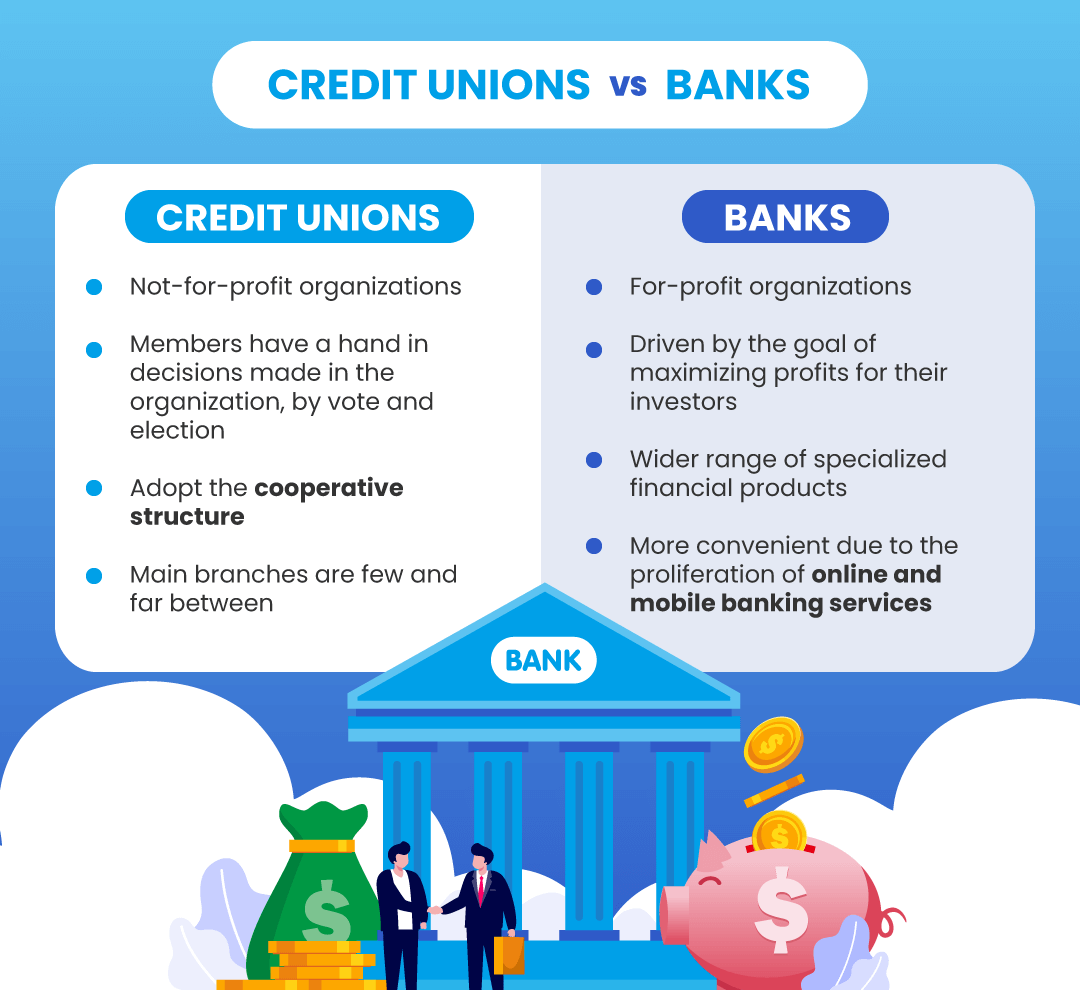Hybrid Line of Credit: Ingenious Financial Products from Wyoming Credit Unions
Hybrid Line of Credit: Ingenious Financial Products from Wyoming Credit Unions
Blog Article
The Ultimate Overview to Understanding Lending Institution

Cooperative credit union stand as one-of-a-kind monetary entities, rooted in concepts of shared assistance and member-driven operations. However, past their foundational worths, understanding the detailed workings of credit rating unions entails a deeper expedition. Untangling the complexities of subscription qualification, the development of solutions offered, and the unique benefits they bring requires a thorough evaluation. As we browse with the details of cooperative credit union, an informative journey awaits to clarify these member-focused institutions and how they vary from conventional financial institutions.
What Are Cooperative Credit Union?
Credit report unions are member-owned monetary organizations that use an array of financial solutions to their members. Unlike conventional banks, lending institution run as not-for-profit companies, indicating their main focus gets on offering their members as opposed to maximizing profits. Participants of a credit scores union usually share a common bond, such as functioning for the exact same employer, belonging to the very same neighborhood, or being part of the same company.
One of the vital benefits of lending institution is that they frequently supply higher rate of interest prices on interest-bearing accounts and reduced rates of interest on financings compared to financial institutions. Credit Unions in Wyoming. This is due to the fact that debt unions are structured to benefit their participants directly, permitting them to pass on their incomes in the kind of far better rates and fewer fees. In addition, lending institution are understood for their customized customer care, as they focus on developing partnerships with their members to understand their distinct economic demands and objectives
History and Development of Lending Institution
The roots of member-owned economic cooperatives, understood today as cooperative credit union, trace back to a time when areas looked for options to conventional banking establishments. The idea of cooperative credit union come from the 19th century in Europe, with Friedrich Wilhelm Raiffeisen typically credited as the pioneer of the participating financial motion. Raiffeisen founded the initial acknowledged lending institution in Germany in the mid-1800s, emphasizing community support and self-help concepts.
The development of credit rating unions proceeded in North America, where Alphonse Desjardins established the first lending institution in Canada in 1900. Soon after, in 1909, the first united state lending institution was created in New Hampshire by a group of Franco-American immigrants. These very early credit report unions operated on the essential principles of shared assistance, democratic control, and participant ownership.
Over time, credit history unions have grown in appeal worldwide as a result of their not-for-profit framework, concentrate on serving participants, and using competitive economic product or services. Today, cooperative credit union play a vital function in the economic sector, offering obtainable and community-oriented banking choices for services and individuals alike.

Membership and Qualification Standards
Subscription at a cooperative credit union is commonly restricted to individuals fulfilling details qualification requirements based upon the establishment's beginning principles and regulative requirements. These standards usually consist of aspects such as geographic area, work condition, membership in particular companies, or affiliation with details groups. Lending institution are known for their community-oriented method, which is reflected in their subscription demands. Wyoming Credit Union. For instance, some lending institution might only offer people that live or work in a particular area, while others may be tailored to employees of a specific business or participants of a specific organization.
In addition, credit score unions are structured as not-for-profit organizations, meaning that their primary objective is to serve their members instead than produce earnings for investors. This emphasis on member solution commonly translates right into more personalized interest, lower costs, and competitive rates of interest on fundings and savings accounts. By fulfilling visit the website the qualification standards and ending up being a member of a credit history union, people can access a variety of financial services and products customized to their particular demands.
Providers and Products Offered
One of the essential facets that sets cooperative credit union apart is the varied series of economic solutions and products they provide to their participants. Lending institution commonly provide typical financial services such as cost savings and inspecting accounts, loans, and charge card. Participants can additionally profit from investment services, including retirement accounts and monetary planning help. Lots of cooperative credit union provide competitive interest rates on savings accounts and fundings, in addition to reduced costs contrasted to see this site typical banks.
Additionally, lending institution often provide hassle-free online and mobile financial alternatives for members to easily manage their finances. They may supply rewards such as common branching, enabling members to access their accounts at various other credit scores unions throughout the nation. Some lending institution likewise supply insurance coverage products like home, life, and auto insurance to aid members shield their properties and liked ones.

Benefits of Banking With Lending Institution
When taking into consideration monetary establishments, checking out the benefits of banking with cooperative credit union exposes one-of-a-kind benefits for participants seeking individualized solution and competitive prices. One significant benefit of credit score unions is their emphasis on personalized client service. Unlike large financial institutions, lending institution are member-owned and prioritize building strong partnerships with their participants. This indicates that lending institution team typically have a much deeper understanding of their participants' financial needs and can use tailored services to assist them attain their objectives. Additionally, debt unions are known for providing affordable rates of interest on cost savings and finances accounts. Due to the fact that they are not-for-profit companies, credit rating unions can typically supply reduced finance prices, greater cost savings prices, and lower charges compared to conventional banks. This can lead to significant cost savings for participants over time. Overall, banking with a lending institution can provide a more personalized, cost-effective, and member-centric financial experience.
Conclusion
In final thought, credit scores unions stand out as member-owned monetary establishments that focus on offering their members over maximizing revenues. With beginnings dating back to 19th century Europe, credit report unions try this out comply with principles of shared aid and member possession.
Credit unions are member-owned financial organizations that use an array of financial solutions to their members. The idea of credit score unions originated in the 19th century in Europe, with Friedrich Wilhelm Raiffeisen commonly attributed as the leader of the cooperative banking movement.The evolution of credit score unions continued in North America, where Alphonse Desjardins established the very first credit score union in Canada in 1900. Credit score unions normally offer conventional financial solutions such as cost savings and checking accounts, car loans, and credit scores cards.When taking into consideration monetary institutions, discovering the advantages of financial with credit scores unions discloses special advantages for members looking for customized solution and competitive prices.
Report this page